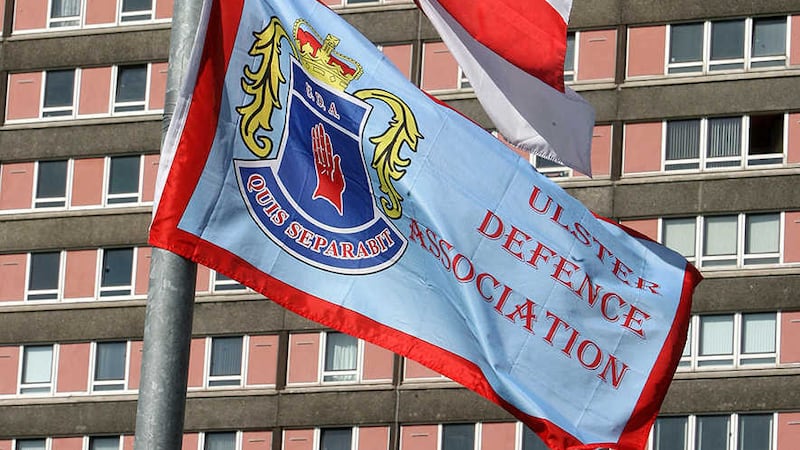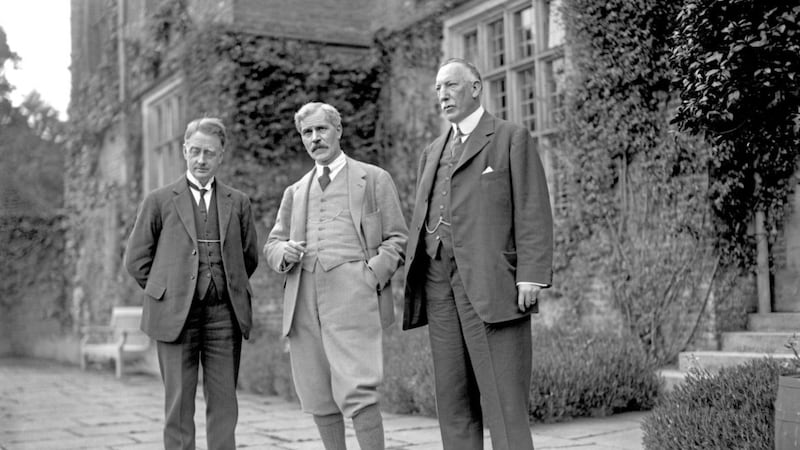This week a loyalist publication printed an editorial saying that the UDA had not 'left the stage' and had no intention of doing so any time soon.
It was no big revelation, those of us who cover such matters are well aware what structures remain in what organisations.
The fact loyalist infighting and jockeying for leadership positions continues and occasionally makes the headlines is proof enough, but then neither the UDA or UVF ever said they'd disbanded or more to the point were ever pressurised into doing so.
That the 'brigadiers' and 'commanders' remain in situ almost 21 years to the day after the Combined Loyalist Military Command announced a cessation of violence should be shocking, but in reality barely registers.
There has been no real assessment of the state of paramilitary activity of any groups, republican or loyalist, since the Independent Monitoring Commission issued its last report. Officially and politically until the murder of Kevin McGuigan there was no real will to address that particular elephant in the room.
In reality political unionism is more than willing to turn a blind eye to violence when there are no gains to be made from challenging it.
Loyalism was always structured in such a way that removing paramilitary groups from society completely is all but impossible.
With no real central command and overall leaders such as Gusty Spence and Andy Tyrie relics of the past, the modern day UDA and UVF have fractured into locally unaccountable fiefdoms.
The UDA has split into numerous factions and there is little love lost between the mainstream UVF and the more hardline east Belfast group.
In some cases certain people (and by people I mean men because loyalism has always been a testosterone dominated world) have control over little more than a few streets within an estate and are loathe to relinquish that small, but status elevating power. Big fish swimming in very small ponds.
And here's the rub that will have some of you choking on your cornflakes - those mini generals are not without public support in the areas in which they reside for if they didn't they wouldn't exist.
If you've never lived in a working class housing estate you may find it hard to fathom but for the duration of the troubles paramilitaries were tasked with policing 'ordinary crime'.
The dishing out of vigilante style 'justice' was what filled the vacuum left by policing which in the form of the RUC was seen as
sectarian and unacceptable by nationalists and too focused on security issues to deal with petty crime by loyalists.
And while the Patten reforms were designed to try and redress that you can also see why people who have profited from war and now do so from controlling the direction of a fragile peace be that through criminality or riding the funding gravy train are reluctant to give that up.
Last week retired senior detective Roy Suitters, giving evidence at the inquest of murdered Catholic man Daniel McColgan, claimed that 90 per cent of people living in the Rathcoole had links to loyalist paramilitaries adding that in places like the Newtownabbey estate "it's very difficult not to have that".
The comments were met with anger by some residents of Rathcoole and while on the face of it they paint a bleak picture, when you think about it the same could probably be said of many similar estates depending on what your definition of 'connections' is.
Does a next door neighbour in prison count as a connection, does a relative through marriage count as a connection, does someone who was in your class in school count as a connection?
Past and present paramilitary members were not beamed down from space, they are a part of the community they live in.
They can't just be vanished like a party trick. The same newspaper that carried the UDA editorial also had an interview with former prisoner Bobby Philpott. He said his biggest regret was that the UFF didn't kill three times more republicans - a startling statement to make especially with the hindsight he now possesses.
The comments carried in The Loyalist newspaper, both in the editorial and by the former loyalist commander were unsurprisingly ignored by mainstream unionists who come election time will seek support of former paramilitary figures to help get the vote out in hard to reach areas.
And with all that, the hypocrisy of the current carefully orchestrated political crisis becomes depressingly transparent.
It's easy to look down on the Bobby Philpotts of this world with his gruff, unapologetic exterior, but him and people like him would never have existed without the 'acceptable' face of unionism that propped them up and even now continues to do so.








